
Vatican City, Mar 11, 2022 / 10:35 am (CNA).
The Vatican made no public comment when Bishop Gustavo Óscar Zanchetta, an Argentine prelate closely associated with Pope Francis, was sentenced to four and a half years in jail for sexually abusing seminarians on March 4. A week later, it still hasn’t.
There are two possible reasons for the Vatican’s silence. First, because a canonical trial of Zanchetta is still open and the Vatican plans to comment only once it is concluded. Second, because the bishop intends to appeal against the court judgment. The Holy See has previously waited for the results of an appeal before issuing a public response.
Zanchetta was one of the first bishops appointed by Pope Francis after his election on March 13, 2013. Zanchetta was named bishop of Orán, in northwestern Argentina, on July 23 of that year, at the age of 49.
In the summer of 2017, he stepped aside as bishop, officially because of “a health problem” — or so he wrote in a letter to his flock, in which he said that he would soon undergo treatment.
The resignation was made official on Aug. 1, 2017, after Zanchetta had already left Argentina for Rome, where he lived in the Domus Sanctae Marthae, the Vatican hotel where Pope Francis resides.
On Dec. 19, 2017, the bishop was appointed assessor of the Administration of the Patrimony of the Apostolic See (APSA), the Vatican’s “central bank.” The post was created especially for him, although there were rumors of financial mismanagement during his tenure in Orán.
Zanchetta was suspended from his Vatican post on Jan. 4, 2019, following the announcement of a preliminary investigation into accusations that he committed sexual abuse. Alessandro Gisotti, the then interim director of the Holy See press office, stressed that Zanchetta had stepped down as bishop because of “his difficulties in directing the diocesan clergy and strained relations with the priests.”
When Pope Francis granted an interview to the Mexican television station Televisa on May 28, 2019, the Zanchetta case had already received wide coverage in Argentina, with a series of investigative articles published in El Tribuno, a newspaper based in Salta, detailing abuse allegations. Pope Francis, therefore, decided to explain his decision-making publicly during the interview.
He said: “There had been an accusation and, before asking him to resign, I had him come here immediately with the person who accused him. In the end, he defended himself by saying that his cell phone had been hacked. So in the face of evidence and a good defense, the doubt remains, but in dubio pro reo [in doubt, for the accused]. And the cardinal of Buenos Aires came to be a witness to everything. And I continued to follow him in a particular way.”
“Of course,” the pope continued, “[Zanchetta] had a way of dealing, according to some, despotic, authoritarian, economic management of things that is not entirely clear, it seems, but this has not been proven.”
“There is no doubt that the clergy did not feel well treated by him. They complained until they made a complaint to the nunciature as clergy. I called the nunciature, and the nuncio said to me: ‘Look, the issue of reporting abuse is serious,’ abuse of power, we could say. They didn’t call it that, but this was it.”
“I made him come here and asked him to renounce. Nice and clear. I sent him to Spain for a psychiatric test. Some media have said: ‘The pope gave him a holiday in Spain.’ But he was there to do a psychiatric test, and the test result was OK; they recommended therapy once a month.”
“He had to go to Madrid and have a two-day therapy every month, so it was not convenient to have him return to Argentina. I kept him here because the test showed that he had diagnostic, management, and consulting skills. Some have interpreted it here in Italy as a ‘parking lot.’”
Pope Francis went on to explain that Zanchetta “was economically disordered, but he did not manage the works he did badly economically.”
“He was messy, but the vision was good,” he said. “So I started looking for a successor. Once the new bishop was installed, I decided to start the preliminary investigation of the accusations leveled against him. I have appointed the archbishop of Tucumán. The Congregation for Bishops has proposed various names to me. So I called the president of the Argentine bishops’ conference, I had him choose, and he said that the best choice for that position was the archbishop of Tucumán.”
The pope continued: “The preliminary investigation has officially arrived. I read it and saw that it was necessary to go through a trial. So I passed it to the Congregation for the Doctrine of the Faith. They are in the process.”
“Why did I tell all this? To tell impatient people, who say ‘he did nothing,’ that the pope must not publish what he is doing every day, but from the very first moment of this case, I have not stood by.”
“There are very long cases, which need more time, like this one, and now I explain why. Because, for one reason or another, I did not have the necessary elements, but today a process is underway in the Congregation for the Doctrine of the Faith. In other words, I didn’t stop.”
As the case proceeded toward trial, Zanchetta traveled back and forth between Rome and Argentina. In June 2020, he resumed work at APSA. But his assignment ended in June 2021, after which he returned home.
While the criminal trial in Argentina has concluded, there is no news of the canonical trial launched by the Vatican as early as 2019. Ahead of Zanchetta’s trial, Argentine prosecutors had asked for the files of the Vatican investigation. Having not received them, they decided to proceed regardless.
So will we have to wait for the end of the canonical process against Zanchetta to receive an official word from the Holy See? Maybe. But it’s also possible that the pope will decide to say a few words informally, perhaps during the in-flight press conference on his return from Malta on April 3.
The Holy See has not often commented on criminal sentences. It did not even do so in the case of Cardinal George Pell, who was unjustly condemned to prison in 2018, before Australia’s High Court unanimously overturned his conviction for five counts of alleged sexual abuse in 2020.
In such cases, the Vatican is seeking to avoid disputing judicial proceedings, while expressing its closeness to people who are presumed to be innocent.
Pell remained a member of the pope’s Council of Cardinals until his mandate expired. It was not renewed because he was over 75, the age at which a bishop customarily retires.
In one declaration, the Holy See press office stressed that it held the Australian judicial system in the highest esteem, but at the same time, it was necessary to consider that Pell maintained his innocence and the appeal trial was pending.
The Holy See also confirmed the activated measures: that the cardinal could not publicly exercise his priestly ministry and had to avoid contact with minors.
In that same declaration, it was not mentioned that Pell was no longer the prefect of the Vatican’s Secretariat for the Economy. Only later did the Holy See press office confirm that Pell no longer held his position in the Roman Curia.
This had the effect of underlining that Pell’s post in the Curia had reached its natural expiration date and was not taken away in response to the Australian court’s decision. This turned out to be a winning position after Pell’s exoneration.
The Vatican took a different approach with another Australian prelate: Archbishop Philip Wilson. This case is the one most similar to Zanchetta’s.
In 2018, the archbishop was convicted of concealing abuse committed by a priest named James Fletcher who had served in the same diocese as Wilson in the 1970s. Wilson was sentenced to 12 months of house arrest and presented his resignation as archbishop of Adelaide to Pope Francis, who accepted it.
A judge then overturned the sentence because there was reasonable doubt that the crime had been committed.
The judge stressed that “the Catholic Church has a lot to answer for in terms of its historical self-protective approach,” but “it is not for me to punish the Catholic Church for its institutional moral deficits, or to punish Philip Wilson for the sins of the now deceased James Fletcher by finding Philip Wilson guilty, simply on the basis that he is a Catholic priest.”
The outcome of Zanchetta’s appeal remains to be seen. But Pope Francis’ pattern of behavior related to such cases is now well established.
On the one hand, he has shown determination in addressing the scourge of abuse in the Church. On the other, he has emphasized repeatedly that the issue of abuse is also a weapon used against the Church.
Concluding a summit on abuse in Rome in 2019, he said that “the Church’s aim will thus be to hear, watch over, protect and care for abused, exploited and forgotten children, wherever they are.”
To achieve that goal, he added, “the Church must rise above the ideological disputes and journalistic practices that often exploit, for various interests, the very tragedy experienced by the little ones.”
The pope also stressed that “the time has come to find a correct equilibrium of all values in play and to provide uniform directives for the Church,” avoiding the two extremes of a justicialism, “provoked by guilt for past errors and media pressure, and a defensiveness that fails to compare the causes and effects of these grave crimes.”
Therefore, the pope recognized that there is also external pressure on cases of abuse and a need for a balance in handling accusations.
But how is this balance exercised? Zanchetta was a friend of the pope, who placed extraordinary trust in him. Nevertheless, when the trial in Argentina was about to start, the pope did not hesitate to let the bishop go. Until the last, however, Zanchetta was able to work at the Vatican, according to the principle of in dubio pro reo.
Yet the same treatment was not extended to the French Archbishop Michel Aupetit, who was not accused of abuse but rather of engaging in an improper relationship, as well as being divisive and authoritarian (accusations he denied).
Returning from his trip to Greece, Pope Francis said that he had accepted the Paris archbishop’s resignation “not on the altar of truth, but the altar of hypocrisy,” suggesting that public attacks on Aupetit’s reputation had made it difficult for him to govern the archdiocese.
For a similar reason, Cardinal Rainer Maria Woelki has asked to resign as archbishop of Cologne after taking a six-month sabbatical after the Vatican found that he had made the error of “miscommunication” regarding a report on abuse in the archdiocese.
These cases are thought-provoking because they suggest that two different weights and measures are being used.
Pope Francis has sought to strengthen anti-pedophilia measures further, even going so far as to abolish the pontifical secret. The new rules on the most severe crimes, published in December 2021, tried to harmonize the various actions taken by Pope Francis to counter abuse.
But the Zanchetta case is an example of how the pope can make mistakes when he trusts people. If there is no consistency in approaching these cases, then it isn’t easy to find justice.
It is also striking that ordinary justice was much faster than the canonical judgment, pointing to understaffing at the Congregation for the Doctrine of the Faith, which handles abuse cases.
One might think that the recent reform of the Congregation’s structure, creating an autonomous disciplinary section, would serve precisely to overcome this impasse. But will the result be greater collaboration with the civil authorities, or will this total division remain?
These are not marginal issues because they touch on the essence of canon law and the sovereignty of the Holy See.
If you value the news and views Catholic World Report provides, please consider donating to support our efforts. Your contribution will help us continue to make CWR available to all readers worldwide for free, without a subscription. Thank you for your generosity!
Click here for more information on donating to CWR. Click here to sign up for our newsletter.




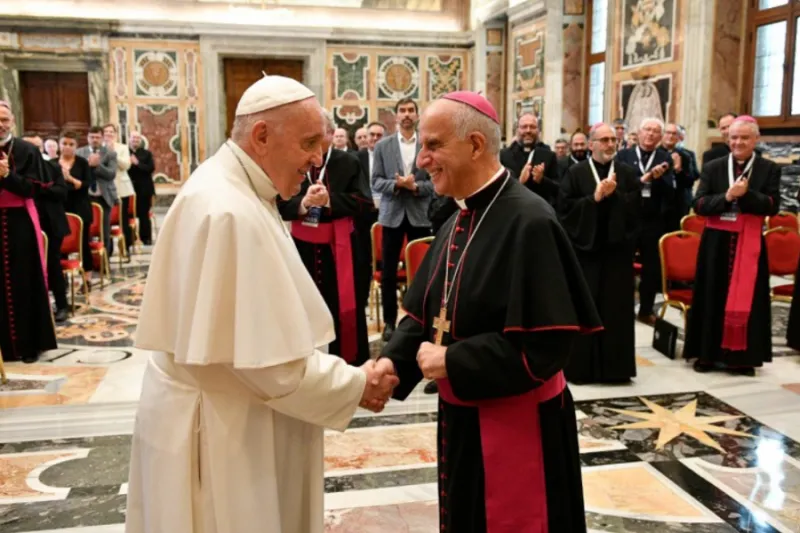
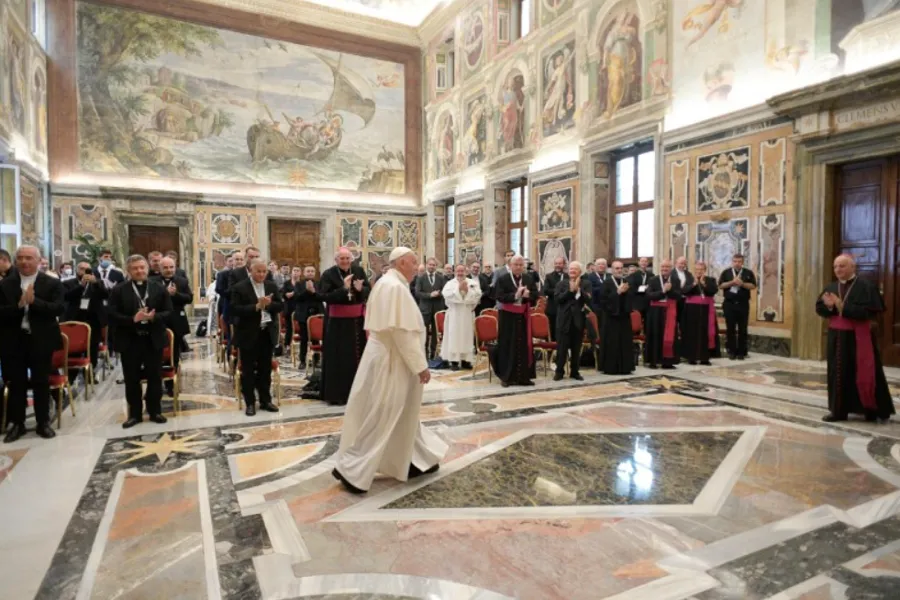
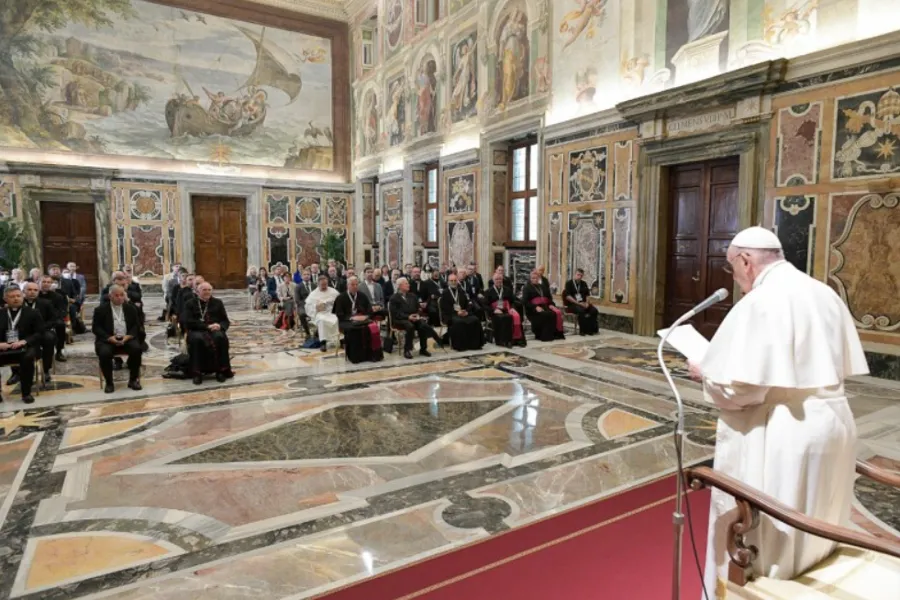
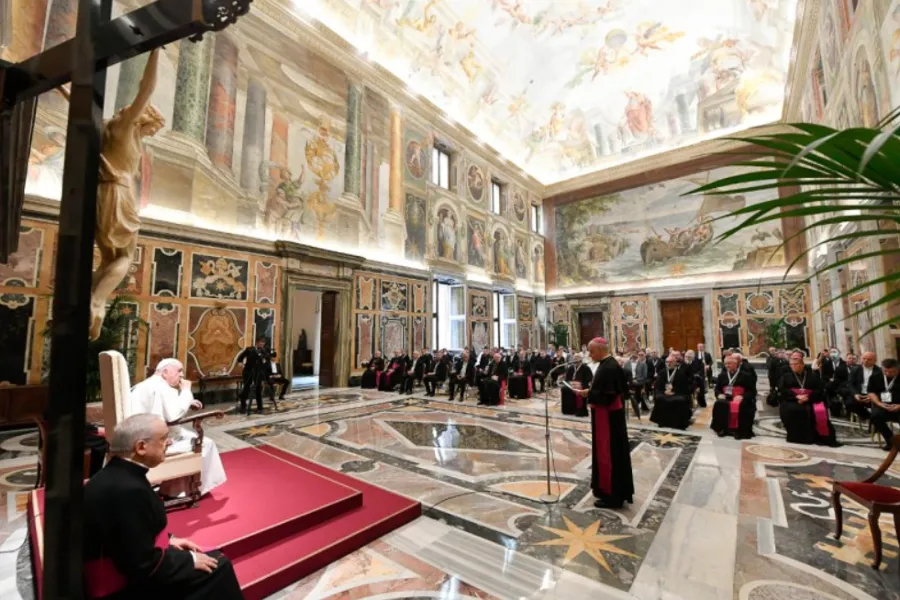
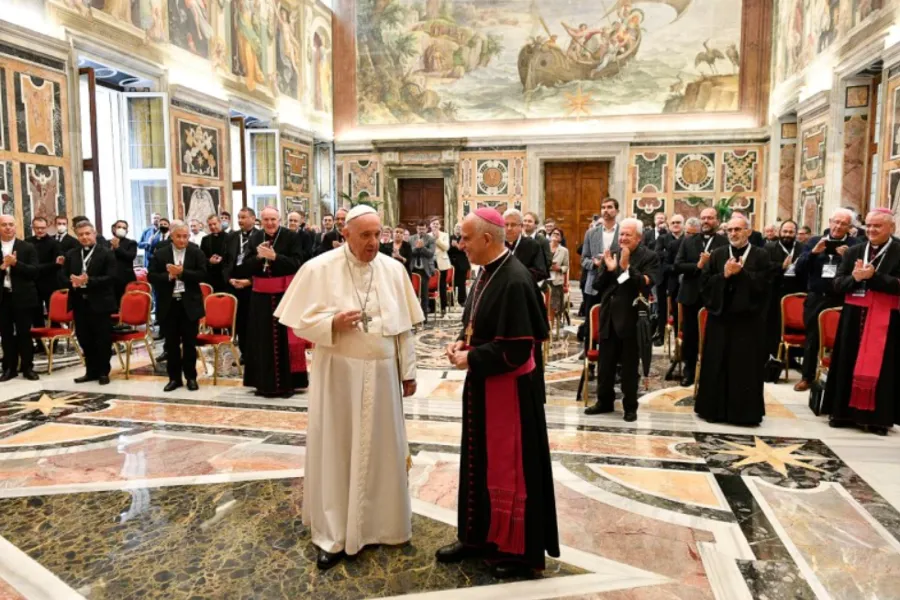
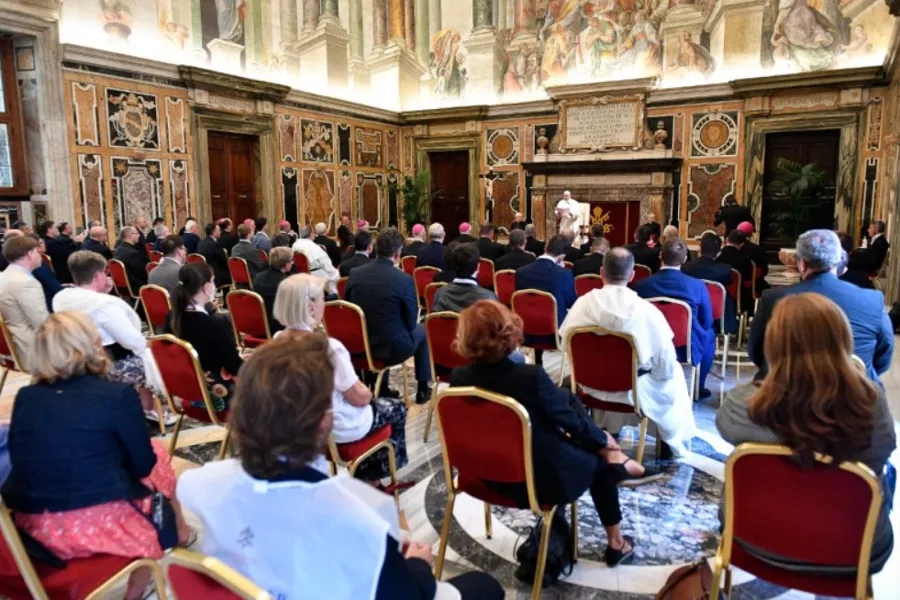
There’s that word again – pedophilia. Zanchetta was accused of abusing seminarians. In this case, at least, the categorization of pedophilia is either misleading or dissembling. Or are we talking some sort of pre- (or pre- pre-) seminary?
Pope Francis needs to resign. Let’s put aside Vatican II and it’s interpretation. Let’s put aside changes to the Catechism. Let’s put aside Tutti Frutti and Amoral Leticia, Let’s put aside his inability to exercise caution and care in his public utterances.
The fact remains, this Pope protects, promotes and surrounds himself with criminals. Thieves and fraudsters like Maradiaga and Becciu, people who cover up sexual abuse like Cupich and Marx, people who commit sexual abuse like Pena Parra, Cocopalmiero, Grassi and Inzoli, or people like McCarrick who are guilty of all of the aforesaid crimes. Why is this being tolerated? Shouldn’t we, the faithful, be entitled to expect better from our Pope? CIC 1740 of the Code of Canon Law states enocurages a pastor to resign (and requires a Bishop to remove him) if his ministry “becomes harmful or at least ineffective for any cause, even through no grave personal negligence”. Causes for this include
1/ a manner of acting which brings grave detriment or disturbance to ecclesiastical communion;
2/ ineptitude or a permanent infirmity of mind or body which renders the pastor unable to fulfill his functions usefully;
3/ loss of a good reputation among upright and responsible parishioners or an aversion to the pastor which it appears will not cease in a brief time;
4/ grave neglect or violation of parochial duties which persists after a warning;
5/ poor administration of temporal affairs with grave damage to the Church whenever another remedy to this harm cannot be found.
https://www.vatican.va/archive/cod-iuris-canonici/eng/documents/cic_lib7-cann1732-1752_en.html
If this is the standard required by our Pastors, shouldn’t we be entitled to expect an even higher standard from the Holy Father?
There is an increasing outcry against this popes words and actions. Perhaps, first outside of the Church of Rome and now those inside who love the Lord and wish to honour Him in spirit and truth.
Some have postulated that he is a cultural Marxist and has a man made agenda! Others have simply said, “He is a Jesuit”, while others a variety of speculations.
We are never to judge a man’s eternal soul as that is the prerogative of the Lord. The Lord asks us to be discerning servants and adjudicate the speech and movement of our fellow sojourners. The Bible and church tradition does not support his endeavours on a number of fronts. The congregants, faithful priests and likewise bishops are the guardians and upholders of the church.
Some have supported excommunication while others have urged him to step down, yet perhaps the best opinion is to pray for him! Whatever the remedy. We know the church will prevail through all the vagaries of man.
Matthew 16:18 And I tell you, you are Peter, and on this rock I will build my church, and the gates of hell shall not prevail against it.
Revelation 1:18 And the living one. I died, and behold I am alive forevermore, and I have the keys of Death and Hades.
Matthew 25:41 “Then he will say to those on his left, ‘Depart from me, you cursed, into the eternal fire prepared for the devil and his angels.
2 Peter 2:4 For if God did not spare angels when they sinned, but cast them into hell and committed them to chains of gloomy darkness to be kept until the judgment;
Ephesians 2:19-22 So then you are no longer strangers and aliens, but you are fellow citizens with the saints and members of the household of God, built on the foundation of the apostles and prophets, Christ Jesus himself being the cornerstone, in whom the whole structure, being joined together, grows into a holy temple in the Lord. In him you also are being built together into a dwelling place for God by the Spirit.
God bless you and let all who love the church hold the pope up in prayer.
As brothers and sisters in Christ we pray seeking God’s wisdom on all matters. It goes without saying that the pope is to be a man of constant prayer. Godly guidance for insight and discernment is vital in all our lives. To bear the burdens of the church and render prudent decisions, the appointed man must put his trust in god and fully exercise his faith.
The author writes, “But the Zanchetta case is an example of how the pope can make mistakes when he trusts people. If there is no consistency in approaching these cases, then it isn’t easy to find justice.” Trusting people instead of trusting God is not the wisest choice in any or all circumstances!B
Proverbs 3:5 Trust in the Lord with all your heart, and do not lean on your own understanding.
Psalm 37:4-6 Delight yourself in the Lord, and he will give you the desires of your heart. Commit your way to the Lord; trust in him, and he will act. He will bring forth your righteousness as the light, and your justice as the noonday.
Romans 8:28 And we know that for those who love God all things work together for good, for those who are called according to his purpose.
Psalm 9:10 those who know your name put their trust in you, for you, O Lord, have not forsaken those who seek you.
Psalm 28:7 The Lord is my strength and my shield; in him my heart trusts, and I am helped; my heart exults, and with my song I give thanks to him.
Proverbs 3:6 In all your ways acknowledge him, and he will make straight your paths.
We read: “It is also striking that ordinary justice was much faster than the canonical judgment, pointing to understaffing at the Congregation for the Doctrine of the Faith, which handles abuse cases.”
Understaffing? My memory is that when the CDF was still in the hands of Cardinal Muller, he was directed by Pope Francis to fire three of his staff. Were these staff making progress on certain sexual abuse cases? (This is not an assertion, but a question.)
When asked by Cardinal Muller for a reason for the firings, the pope was reported to have answered “I don’t need a reason, I’m the pope.”
The desert island outline comes to mind! Two options are available, a man of God or a man of the world. The soul nurtured and blessed by one and the other, offering his perspective regarding the sate of affairs on the earth.
“But the Zanchetta case is an example of how the pope can make mistakes when he trusts people” (Gagliarducci). An astute journalist, professional, avoiding interpretation [judgment] of Francis’ marked tolerance. Although, his essay reveals, as suggested the question whether tolerance of Zanchetta, and several other high positioned with tawdry record is policy. What policy?
Perhaps tiresome to address this time and again is the growing complacency of many who initially voiced complaint. We’re becoming inured. Subdued by the consistent duplicitous, otherwise more kindly described dualism of papal messaging. As by nature of [fallen] man the radical part succeeds.
The Great Earth changing Synod isn’t quite as popular as noted in a recent CWR article. Nevertheless, the momentum seems according to a presumed strategy for epochal change, that is, change effecting actual formal doctrine. While Gagliarducci perceived an issue for the Church in the disparity of judgment betwixt canon law and civil adjudication because of His Holiness’ eviscerating of the CDF, was that separation intended to protect those ‘tawdry’ appointees with the embrace of Mother Church [analogously as Mother Russia protects itself with an idolatrous image of the Trinity as political hegemony rather than religious purity].
Our world turns revealing glimpses of what transpires much of which seems a natural, inevitable process more accidental than intended. Except for what now transpires at the Vatican.
I suggest there is a third possible reason for the Vatican’s silence regarding Zanchetta’s conviction and sentencing: It is deeply embarrassing to the Pope shielded and doted on this criminal pervert. I grant permission to CNA to print my idea without attribution.